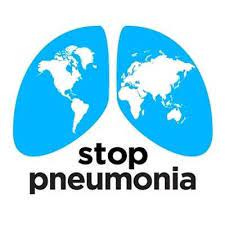Air pollution is the leading risk factor for death (749,200 in 2019) from pneumonia across all age groups.
Commemorating the World Pneumonia Day, 12th November | Join the Aarogyam Telegram Channel at https://t.me/aarogyam108
Almost a third of all pneumonia deaths were attributable to polluted air, killing around 749,200 in 2019
Pneumonia is the single biggest infectious killer of adults and children – claiming the lives of 2.5 million, including 672,000 children, in 2019.
Deaths from COVID-19 will add two million more in 2020, bringing the total to more than four million. No other infection causes anywhere near this burden of death.
This year, World Pneumonia Day, on 12 November 2021, is held during COP 26 – the UN Climate Change Conference.
This is a critical moment to bring together the health, air quality and climate community to tackle the biggest infectious killer on the planet.
Air pollution is the leading risk factor for death from pneumonia across all age groups. Almost a third of all pneumonia deaths were attributable to polluted air, killing around 749,200 in 2019. Household air pollution contributed to 423,000 of these deaths while outdoor air pollution contributed to 326,000.
It is the very young and the very old who are at greatest risk. Children are more susceptible to household air pollution in homes that regularly use polluting fuels and technologies for cooking, heating and lighting. While outdoor air pollution, especially from pollutants emitted by industries and car exhaust smoke, disproportionately affects respiratory health among older adults.
Ninety percent of air pollution-related deaths are concentrated in 40 low- and middle-income countries. In many African countries, air pollution contributes to more than 50 percent of all pneumonia deaths. And while pneumonia deaths from household air pollution are declining in Africa, they are tragically increasing as a result of outdoor air pollution. This is also true for Asia.
The need for clean air action is clear. Reducing air pollution will deliver significant benefits to health and the environment.
This World Pneumonia Day, Every Breath Counts is calling on governments with heavy burdens of pneumonia and air pollution to commit to reducing air pollution-related pneumonia deaths by 50 percent by 2030.
Join the Aarogyam Telegram Channel at https://t.me/aarogyam108
Pneumonia is an Infection that inflames air sacs in one or both lungs, which may fill with fluid.
With pneumonia, the air sacs may fill with fluid or pus. The infection can be life-threatening to anyone, but particularly to infants, children and people over 65.
Symptoms include a cough with phlegm or pus, fever, chills and difficulty breathing.
Antibiotics can treat many forms of pneumonia. Some forms of pneumonia can be prevented by vaccines.
Pneumonia is Very common having More than 10 million cases per year in India
Some types are preventable by vaccine
Pneumonia is TREATABLE by a medical professional
Requires a medical diagnosis
Lab tests or imaging always required
Spreads by airborne droplets
Short-term: resolves within days to weeks
Requires a medical diagnosis
Symptoms include a cough with phlegm or pus, fever, chills and difficulty breathing.
Symptoms of Pneumonia
People may experience:
Pain types: can be sharp in the chest
Whole body: fever, chills, dehydration, fatigue, loss of appetite, malaise, clammy skin, or sweating
Respiratory: fast breathing, shallow breathing, shortness of breath, or wheezing
Also common: coughing or fast heart rate
Treatment consists of antibiotics
Antibiotics can treat many forms of pneumonia. Some forms of pneumonia can be prevented by vaccines.
Join the Aarogyam Telegram Channel at https://t.me/aarogyam108




